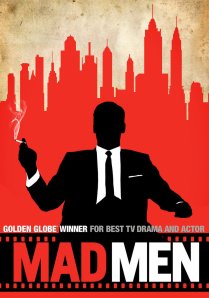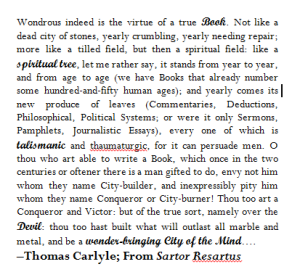This is it, folks. I am finally about to begin my first semester of graduate school, and I have never before experienced such a tumultuous mindset: a unique mixture of nervousness, joy, dread, anticipation, eagerness…. Every feeling possible–it’s all here.
Anyone else who has been in my shoes has likely experienced similar sensations. From speaking with current and former grad students, I have ascertained that these next few years will be fraught with sleepless nights, caffeine overloads, and the passionate fervour of learning about what you love. For me, this means studying Victorian literature, reading about Shakespeare, and developing my own personal brand of theoretical criticism. It means delving into the inner recesses of gender theory and determining both abstract and practical applications for my findings. I will tackle my thesis head on and emerge victorious. I will attend conferences, present papers (hopefully), and not die from anxiety in the process. (This latter goal is perhaps the most significant one to accomplish.)
It also means I must engage in the most dreaded practice of all: networking. For an introvert like me, forcing conversation with strangers is not an ideal way to spend my precious free time. But it is a necessary evil, as I am slowing learning. I have already made strong connections with professors and peers as an undergraduate–why not take this process to the next level? This perhaps may be the biggest struggle for me, but I have aptly prepared for the challenge.
Adding to my graduate-level workload are the additional tasks and activities in which I engage in my personal and professional life. I do have a part-time job, and though it does not appeal to my interests or passions, it pays the bills and takes up a sizable portion of my free time. More importantly, however, is the work I do for my internship with an author services partnership and the time I spend volunteering for animal welfare. And finally, I am vice president of a student-run organization on my university’s campus–Sigma Tau Delta, to be precise.
I clearly have a lot of hard work and plenty of exciting ventures to look forward to, but I will welcome the challenges as they arrive. I will greet them in a friendly manner, and then I will destroy them. And I will look fabulous doing so.

